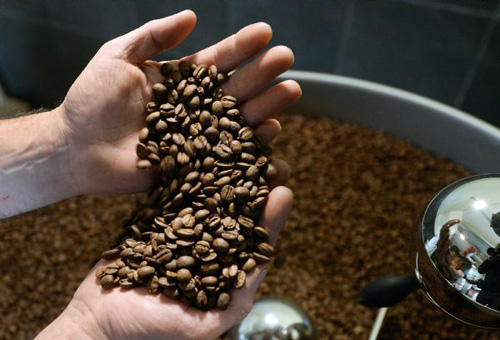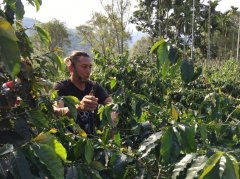Internet of Things to Transform Global Coffee Supply Chain
Coffee is the world's second largest commodity, with a $100 billion market. But the trade in coffee beans is so unfair that coffee farmers in developing countries have to accept low prices and delayed payments. Bext360, a U.S. startup, is using artificial intelligence, blockchain and the Internet of Things to transform the global coffee supply chain to boost coffee farmers 'incomes.

Internet of Things to Transform Global Coffee Supply Chain
Bext360, a U.S. startup, is using artificial intelligence (AI), blockchain and the Internet of Things (IoT) to transform the global coffee supply chain to boost coffee farmers 'incomes.
According to CryptoCoinsNews and VentureBeat, coffee is the second largest commodity in the world, with a market size of $100 billion. But the trade in coffee beans is so unfair that coffee farmers in developing countries have to accept low prices and delayed payments. There are millions of coffee farmers in the world, and according to the World Bank, they earn very little, with many small farmers living on less than $2 a day.
Coffee lovers worldwide, on the other hand, increasingly value transparency in the coffee supply chain. Bext360 leverages Stellar.org's blockchain technology to bring transparency to the coffee supply chain, recording coffee bean transactions in real time and ensuring fair transaction payments.
Daniel Jones, founder and CEO of Bext360, said coffee drinkers will also want to know where their coffee comes from and whether the seller of the beans is getting a reasonable price. Jones noted that consumers are more interested than ever in knowing where a product comes from. But Fairtrade groups generally have high costs in tracing raw materials. They use less accurate basic tracking mechanisms, and coffee farmers can still be exploited.
Bext360 uses IoT, machine learning and AI technology to develop an automatic coffee bean recycling machine that can judge the quality of coffee beans in real time. The machine evaluates coffee cherries and beans using optical screening and grades them according to quality.
Coffee farmers can use mobile apps to check coffee bean grades and accept buyer offers. Powered by Stellar blockchain trading platform, the App will immediately pay coffee farmers. In contrast, coffee farmers had to hand over beans to buyers, who inspected and graded them manually, and then took months to get paid.
Bext360 uses Stellar Network, a distributed real-time transaction protocol, to record timestamps, values or amounts, so transactions can be processed accurately. Traders, farmers and cooperatives involved in the transaction can view relevant data transparently through Stellar network.
Bext360 deploys coffee bean recycling machines to collect and analyze coffee beans and pay coffee farmers immediately based on quality. Bext360 machines analyze and collect coffee beans while paying for them through direct bank loans.
In addition to payments, the Bext360 platform collects critical data. For example, the Bext360 machine also collects data on the quality and efficiency of coffee growing methods and analyzes supply chain dynamics in real time to create new business opportunities and improve supply chain efficiency.
It is worth mentioning that there are more and more cases of applying blockchain technology to the humanitarian field. For example, the World Food Programme (WFP) announced in March that it was using the Ethereum blockchain to distribute cash assistance to the world's most food-deprived families. By using this technology, WFP can effectively and safely deliver assistance to those in need.
Important Notice :
前街咖啡 FrontStreet Coffee has moved to new addredd:
FrontStreet Coffee Address: 315,Donghua East Road,GuangZhou
Tel:020 38364473
- Prev

How does a coffee rookie choose the coffee pot that suits him best?
There are many kinds of coffee pots, different coffee pots require different degrees of coffee powder, the principle and taste of extracted coffee are different, the following is to explain the characteristics of each coffee pot, how to choose? American Coffee Machine American Coffee Machine is a classic trickle filter extraction; when the power is turned on, the high heat element in the coffee pot will quickly flow down from the water storage tank
- Next

The secret of the coffee prince selflessly sharing good coffee is..
Coffee Prince Fang Zhenglun went to Hualien Mizuho to teach coffee farmers to select suitable varieties and roast coffee. Reporter Chen Liting / Fang Zhenglun, the Zou nationality of Alishan, known as the prince of coffee, was invited by Hualien Mizuho Township Office to share the process of coffee cultivation and post-production today. He said that coffee has been on the road for 17 years, from not drinking coffee at all. until winning the championship coffee and even breaking out in international competitions
Related
- What is the difference between Indonesian Sumatra Mantinin coffee and gold Mantinin? How to distinguish between real and fake golden Mantelin coffee?
- What does bypass mean in coffee? Why can hand-brewed coffee and water make it better?
- Unexpected! Ruixing Telunsu lattes use a smoothie machine to foam milk?!
- % Arabia's first store in Henan opens into the village?! Netizen: Thought it was P's
- Does an authentic standard mocha coffee recipe use chocolate sauce or powder? Mocha Latte/Dirty Coffee/Salty Mocha Coffee Recipe Share!
- What is the difference between Vietnam egg coffee and Norway egg coffee? Hand-brewed single product coffee filter paper filter cloth filter flat solution!
- What is the difference between sun-cured and honey-treated coffee? What are the differences in the flavor characteristics of sun-honey coffee?
- How to make Italian latte! How much milk does a standard latte use/what should the ratio of coffee to milk be?
- How to make butter American/butter latte/butter Dirty coffee? Is hand-brewed coffee good with butter?
- Is Dirty the cold version of Australian White? What is the difference between dirty coffee/decent coffee and Australian white espresso?

